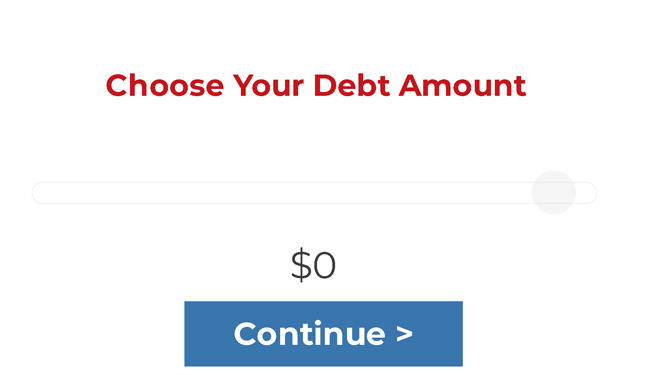Paying off high-interest debt can be a real challenge, no matter how disciplined you are with your finances. It can take months or years to get out of debt, making it hard to reach your financial goals.
One way to streamline your debt payments is through consolidation. Debt consolidation involves taking out one new loan to pay off existing debts, typically via a debt consolidation loan, balance transfer credit card, student loan refinancing, home equity loan, or HELOC. This can help you save money on interest and simplify your monthly payments.
What is debt consolidation?
Debt consolidation can be a great way to reduce your monthly payments and simplify your financial life. By combining multiple debts into one loan, you can often get a lower interest rate and save money on fees. This can help you pay off your debts faster and become financially free.
There are several types of debts that can be consolidated, including credit card debts, personal loans, medical bills, and more.
- Auto loans
- Credit cards
- Medical debt
- Payday loans
- Personal loans
- Student loans
Debt consolidation can be a helpful strategy for managing and paying off your debts. By consolidating your debts into one low-interest loan, you can save money on interest payments and make it easier to stay on top of your monthly payments. This can help improve your credit score and financial health overall.
Types of debt consolidation

You have a few options to choose from if you’re looking for how to consolidate debt.
Debt consolidation loan
Debt consolidation loans can help you pay off multiple debts by consolidating them into one fixed monthly payment. These loans typically have terms of 1-10 years, and you can often consolidate up to $50,000.
Most lenders don’t specify how the loan proceeds must be used, so it’s up to the borrower to decide which outstanding credit card and loan balances to consolidate. You’ll also begin making monthly payments to the new lender for the duration of the loan.
Ideally, you want to focus on the debts with the higher interest rates first. Also, this option only makes sense financially if your new loan’s interest rate is lower than the interest rates of your previous credit cards or loans. Although consolidating may result in a more affordable monthly payment, you’ll still end up paying more in interest overall due to the extended loan term.
Best for: Borrowers who want to streamline their repayment process can do so by using different methods.
Key takeaway: Debt consolidation loans can help you manage your monthly payments and get out of debt faster. By consolidating your debts into one loan with a lower interest rate, you can save money and pay off your debts more quickly.
Balance transfer credit card
Transferring balances from high-interest credit cards to ones with lower interest rates can save you money. This is called balance transfer and is similar to debt consolidation loans.
Most balance transfer credit cards offer an introductory period with 0% APR, lasting 12-21 months. This means that you have the potential to save thousands of dollars in interest payments by paying off all or most of your debt during this time.
However, it’s important to be aware that balance transfer credit cards often have higher interest rates than other forms of debt consolidation. So, you may find yourself in more debt down the road unless you’re able to pay off your remaining balance before the end of the intro period.
Best for: Borrowers who can pay off credit cards quickly tend to be more financially responsible.
Key takeaway: Credit cards with a 0% intro APR on transfers of balances can help you pay off your credit card debt and save money on interest.
Student loan refinancing
Consolidating your student loans through refinancing could help you to obtain a lower interest rate, especially helpful for those with high-interest student loan debt. Student loan refinancing allows borrowers to condense multiple federal and private loans into one monthly payment with more favorable terms.
That being said, it’s important to note that not everyone will meet the requirements to refinance their loans. Additionally, by choosing to refinance federal student loans, individuals could forfeit certain protections and benefits such as income-driven repayment or deferment options.
Best for: Borrowers who have taken out private student loans with high-interest rates may be struggling to make their monthly payments.
Key takeaway: Refinancing your student loans can help you save money on interest, but it can be a risky proposition if you experience financial hardship.
Home equity loan
Home equity loans are an attractive way to access the equity in your home. They typically have lower interest rates than credit cards and personal loans, and you can usually borrow up to 85% of your home’s value (minus any outstanding mortgage balances).
However, home equity loans are secured by your home, so you could lose your house if you default on the loan. Before taking out any type of loan, be sure to understand the risks involved.
Best for: Homeowners with a lot of equity in their property and a stable income are good candidates for borrowing money.
Key takeaway: Debt consolidation loans are often advertised as a way to get a handle on your finances and save money, but they can be risky.
Home equity line of credit
With home equity lines of credit (HELOCs), you can borrow against the equity in your home. HELOCs act as revolving lines of credit, so you can withdraw funds as needed with variable interest rates, similar to credit cards. The amount you can borrow with HELOCs is based on the equity you have in your home.
HELOCs are long-term loans, with an average draw period of 10 years. The repayment period can last up to 20 years, after which you can no longer borrow from your credit line.
Best for: Borrowers who have a lot of home equity and want a longer repayment timeline will benefit from this loan option.
Key takeaway: HELOCs are a great way to save money on your monthly payments. With a HELOC, you can only borrow as much as you need to pay off your debt. This means that your monthly payments will be far more affordable.
How to consolidate debt

There are a few different ways to consolidate debt, but the process is mostly the same no matter which method you choose. Here’s what you need to do to get started:
- Step 1: Get prequalified. Some lenders will allow you to view potential loan offers, including the loan amount, loan term, interest rate, and fees, without impacting your credit score. It’s a good idea to research several lenders and get prequalified on their websites so that you can compare your options.
- Step 2: Compare loan offers. When you are considering taking out a loan, it is important to compare offers from multiple lenders to get the best deal. Be sure to pay attention to interest rates and fees, as a lower interest rate may not always be the best option depending on other factors.
- Step 3: Gather your documents. As you prepare to submit your loan application, be sure to have all the required documentation on hand to avoid any delays in processing. This typically includes recent pay stubs, bank statements, or tax returns (for those who are self-employed). These can usually be uploaded directly onto the online application portal.
- Step 4: Submit a formal application. The loan application process is very important. Make sure that you take your time and fill out the application completely and accurately. Incorrect or missing information could delay your loan or result in a denial, so you must double-check your work.
- Step 5: Pay off your balances. After your debt consolidation loan is approved and you receive the funds, you can start paying off your creditors. You can either make the payments yourself or have the lender do it for you, depending on the options they offer.
Debt consolidation and debt settlement are two different methods of dealing with debt. With debt consolidation, you take out a new loan to pay off your existing debts. With debt settlement, you negotiate with your creditors to settle your debts for less than the full amount owed.
Debt consolidation pros and cons
Debt consolidation can be a helpful tool for some people, but it’s not right for everyone. Consider the pros and cons of consolidating your debts before making a decision.
Pros
- Credit score improvement. Consolidating your debt could give your credit score a boost. This is because consolidating your debt can lower your credit utilization ratio, and may also improve your payment history.
- Less total interest. Debt consolidation can save you money by reducing the interest rate you’re paying on your debts. By consolidating multiple debts into a single loan with a lower interest rate, you could potentially save hundreds of dollars.
- Simpler debt repayment process. Multiple credit cards and loans can make monthly payments difficult to keep track of, especially when they have different due dates. A debt consolidation loan can make budgeting your month simpler and help you stay on top of payments.
Cons
- Collateral at risk. Secure loans like home equity loans or HELOCs may seem like a good idea, but you could lose your collateral (like your home) if you can’t make the payments.
- Higher possible cost of debt. The amount of money you can save with a debt consolidation loan depends largely on the terms of the loan. A longer repayment timeline may lower the interest rate, but you will end up paying more in interest over time.
- Upfront costs. Debt consolidation can help you save money by consolidating your debt into one monthly payment. However, there may be fees associated with this service, including origination fees, balance transfer fees, or closing costs.
How to decide if debt consolidation is right for you
Debt consolidation can be a great way to save money on interest and reduce your monthly payments. However, it’s important to make sure that your spending is under control and that your credit score is high enough to qualify for a competitive interest rate. You should also consider your current debts when deciding whether or not consolidation is right for you. consolidating your debts could be a smart financial move.
When not to consolidate debt
Debt consolidation can be a great way to get your finances in order. However, it is important to be disciplined and not use your credit cards after you have consolidated your debts. Otherwise, you could end up with even more debts than before. It is also crucial to make sure that you can afford the monthly payments on your consolidation loan. Otherwise, you may fall behind and damage your credit score.
Consider your credit rating before consolidating your debts. Your interest rates will likely be higher.
Bottom line

Debt consolidation can be a great way to get your finances back on track. But before you consolidate your debt, it’s important to understand the underlying reasons for how you got into debt in the first place. Only then can you make sure that you don’t repeat the same mistakes in the future.
Take the time to examine your options and get quotes from several lenders, including credit, unions, online banks, and other lenders. Compare, interest rates, fees, and terms before finalizing your decision.






